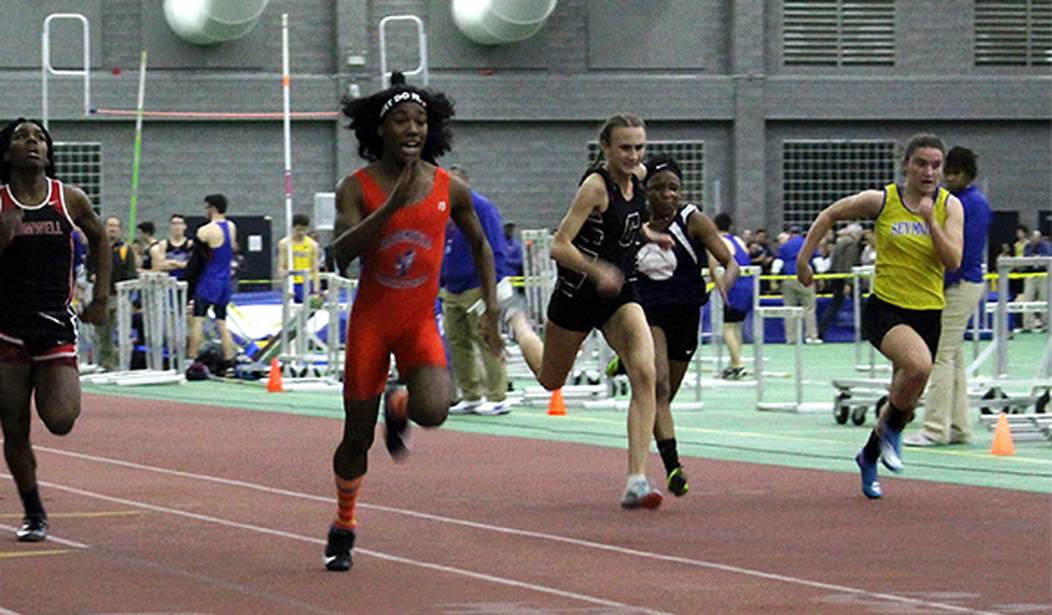In March, the Department of Justice spoke out on an issue that has only begun to receive the attention it deserves: equal opportunity in athletics. In a statement of interest filed in federal court, the DOJ criticized a Connecticut Interscholastic Athletic Association policy that allows biological males who identify as female to compete against girls. This policy is the subject of a federal lawsuit that Alliance Defending Freedom filed on behalf of several female athletes against the CIAC. Since then, Idaho became the first state to pass and enact a law that protects female athletes like the ones suing in Connecticut.
These two developments are only the latest steps in this fight for women’s rights for fair athletic competition. Last summer, the Connecticut high school athletes filed a Title IX complaint about the CIAC’s misguided policy with the U.S. Department of Education’s Office for Civil Rights. One athlete was Selina Soule, a talented runner positioned to advance to the regional championship. But in the 2018-2019 academic year, Selina missed qualifying for regionals by two places because biological males took the two top spots.
Selina lost her chance to compete at the regional level—and potentially missed out on the scholarship opportunities that come with it—because the CIAC allows males to compete against girls.
Selina is not the only young woman to lose out to males on key athletic opportunities. In her freshman year, Alanna Smith would have placed second in an event at regionals, but she lost to a male. Chelsea Mitchell has lost four girls’ state championships, two all-New England awards, and multiple other awards to males. And Ashley Nicoletti should have advanced to a state level championship final, but two male athletes took her spot.
These young women decided that was enough. They and their fellow female athletes have worked too long and too hard to watch their opportunities and awards given away to males. That’s why the DOE complaint and then the federal lawsuit came about.
Recommended
Maintaining separate athletic contests for boys and girls is based on real biological differences—differences that matter to fair competition and the law. In its statement of intent to the federal district court handling the lawsuit, the DOJ echoed ADF’s concerns. Attorney General William Barr wrote, “As reflected in Title IX, the basis for single-sex athletics is rooted in the reality of biological differences between the sexes. Clearly then, eligibility to participate in a single-sex team must be based on objective biological fact. Girls should not be forced, through the dismantling of Title IX, to be sidelined in their own sports.”
The DOJ’s statement is timely because athletes all over America are feeling the sting of missed opportunities. As part of a nationwide effort to stop the spread of the coronavirus, officials have canceled or postponed athletic competitions at every level—and athletes, from Olympic competitors to high-schoolers, are watching their dreams evaporate. For many (such as high school seniors), postponing a competition means they won’t be able to compete at all, a devastating blow after years of hard work.
These athletes might feel that such a turn of events is unfair, but at least it is unfair to everyone. For Selina, Chelsea, Alanna, and Ashley, the terrible disappointment of realizing that they won’t get to compete on a level playing field is mixed with knowing that they are, quite simply, being punished for being female.
It is no small thing to devote oneself to excellence for years, to gradually become one of the best, and then to suddenly have the recognition and rewards for one’s hard work snatched away…and given to someone who should not have been in the competition in the first place. The DOJ’s decision to speak into this federal court case and reiterate that Title IX reflects real, biological differences between men and women brings some much-needed clarity into the situation.
The DOJ letter recognized the importance of this case, stating, “CIAC [policy] deprives those women of single-sex athletic competitions and the opportunity to compete on equal athletic footing.”
For athletes all over America, the 2020 season has been full of disappointment due to postponements and cancellations. But many of these athletes can compete again. For the four Connecticut athletes and the many other female athletes facing unfair competition from biological males, things are not so simple. If the court refuses to uphold their right to fair competition under Title IX, they may not have another chance.
Kristen Waggoner is senior vice president of U.S. legal division for Alliance Defending Freedom. Follow her on Twitter @KWaggonerADF and follow Alliance Defending Freedom @AllianceDefends.

























Join the conversation as a VIP Member